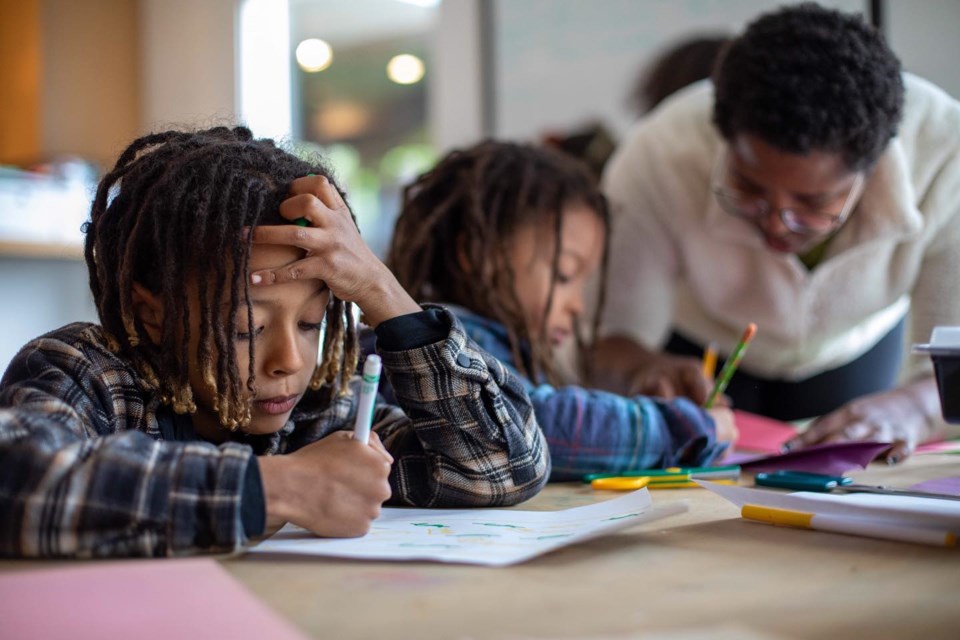A Vancouver-based school focused on arts and culture which teaches using the knowledge of black, Indigenous and people of colour (BIPOC) is seeking funding to continue their program.
The Art Roots and Culture (A.R.C.) CommUNITY was founded in the Spring of 2020 by parents and community builders as an alternate source of education during the coronavirus (COVID-19) pandemic. In response to the school closures and an increase in public attention to racial injustice, the school’s founders created events that prioritize BIPOC families to gather and share knowledge and skills to guide children to an equitable future.
From its inception, families supporting the school have been volunteering their time and resources and funding the majority of projects out of pocket. The school did receive a funding grant through LUSH Cosmetics though which supported the fall session of the school’s farming program.
The farming program is a collaboration with UBC Farms, Afro Van Connect, Wild Imagination program and the Community Arts Council of Vancouver. The program enables the students to go to the UBC Farm one day a week and learn how to grow food and outdoor skills like building a fire.
The school has big costs on the horizon though, as come September they are moving to a new location in East Â鶹´«Ã½Ó³»and starting a new term. As such, the school has launched a to cover the costs of two classroom educators, outdoor education facilitators, guest instructors and mentors, materials, and classroom and space rental fees in the interim.
So far, the campaign has surpassed the $9,200 mark out of its $17,600 goal.
"It has been really amazing having people reach out through the platform offering other resources and also becoming interested in our programming because we do offer daytime programming for elementary-aged children as an alternative to the public school system," van der Heyden said.
Van der Heyden went on to explain where the A.R.C. CommUNITY school fits into the education system, saying it fills a significant educational need.
"What we were interested in is enhancing the cultural competency and learning that we felt there was a really large gap in the public school system," she said. “It's not an exclusive school, everybody is welcome to join but we're trying to change the focus of learning from Euro-centric, where everything is centred around whiteness.”
She also explained how the curriculum is not decided by teachers but rather by the students themselves.
"We sort of do things a little bit more inquiry-based so we're taking direction from the student as well as to what they're interested in learning in and then working in the competencies of learning like reading, writing, math,” van der Heyden said.
Van der Heyden said last month there was a big focus on Black History Month so each student created a poster board presentation on a historic black figure.
For her own part, van der Heyden says when some of the younger students were interested in the science of farting and pooping she took the opportunity to teach them about the digestive system.



